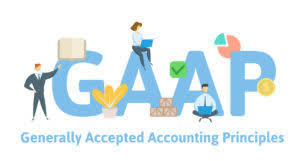
From financial reporting to revenue recognition to grants and contracts to auditor report changes, you have a lot going on in the not-for-profit QuickBooks financial arena right now. Whether you’re already an expert in NFP audit and accounting standards or just getting started, this is the practical guidance you need. This AICPA Accounting and Auditing Guide is a must-have for the resource libraries of accounting and auditing professionals who work with not-for-profit organizations.
Don’t overthink overhead expenses.
In this document, you’ll record your nonprofit’s revenue and expenses from the year, to demonstrate how finances have been utilized. Essentially, the Form 990 is the IRS’s method of evaluation to make sure your nonprofit is financially honest and legitimate. Filing the annual Form 990 is a key aspect of nonprofit accounting, and one that can’t be overlooked.

Financial statements for nonprofits
A new, greatly enhanced AICPA audit and accounting guide, Not-for-Profit Entities, is available in ebook form. After https://www.bookstime.com/ you’ve registered as a nonprofit with your state, the next step is to apply for tax-exempt status under Section 501. While tax-exempt status might be determined by the IRS and federal law, nonprofit status is determined by state law. Because of this, the IRS requires that you obtain nonprofit status from your state before applying for tax-exempt status.
- If outsourcing your accounting needs sounds like a tempting option for your organization, be sure to look for a firm that works specifically with nonprofits.
- This will ensure that your organization is staying on track to achieve your goals.
- When you outsource your finances to us, you’ll have access to professionals who are not only experts in finance, but also understand the intricacies of the nonprofit world.
- Using a personal bank account and keeping a shoebox full of receipts isn’t going to cut it.
- Overhead includes those expenses that nonprofits use to cover administrative costs, market their mission for fundraising, and pay for other internal expenses that help the organization grow.
Be prepared for tax season early
In most cases, it’s better to let your accounting software or a bookkeeper take care of this step for you. Our professional opinion is that the majority of nonprofits will benefit from outsourcing their bookkeeping and accounting needs, working directly with nonprofit accounting experts. It’s an affordable option that can provide access to deep nonprofit accounting experience and expertise. The right nonprofit accounting experts ensure your knowledge of and compliance with nonprofit tax and accounting regulations is up to par, preventing costly mistakes from ever happening. Your nonprofit’s statement of cash flow shows how funding and cash moves in and out of the organization. It allows you to gauge how much is available to pay your expenses at any given time.
Statement of Cash Flow
Once you’ve got a bookkeeping system in place, you need to start creating financial statements. Looking at these documents can tell you how much money you have, where your money is, and how it got there. Nonprofit-friendly accounting software shouldn’t just allow you to create professional-looking budgets.
- The IRS provides this handy questionnaire to help you figure out exactly which parts of the tax code apply to your organization, and which form you’ll use to apply for tax-exempt status.
- Actually, 18% of nonprofits listed limited staff as their greatest challenge in 2019.
- Make sure all of your nonprofit’s transactions go through a dedicated bank account.
- One major difference between the statement of activities and the income statement is that instead of calculating net “profit,” the statement of activities calculates changes in net assets.
- PwC refers to the US member firm or one of its subsidiaries or affiliates, and may sometimes refer to the PwC network.
- You should check in with your budget monthly, comparing and evaluating your budgeted revenue and expenses against your actual revenue and expenses.
Form 990 is the annual tax form that tax-exempt (e.g. 501(c)3) organizations are required to file each year to remain GAAP for Nonprofits compliant with the regulations and requirements set by the IRS. Nonprofit accounting professionals must adhere to specific guidelines when they create reports. The primary guidelines your organization should know about are the GAAP standards.


For the most part, nonprofits can apply to the IRS to become exempt from federal taxes under Section 501. For the most part, however, cash flow statements for non and for-profits are very similar. Unrestricted net assets are any funds your nonprofit has received from donors that have no rules or conditions attached to them, like a pure cash donation. You probably didn’t start a nonprofit organization to stare at spreadsheets and Google things like “how to record an in-kind donation.” In addition, audits provide insight into the various opportunities that your organization has for financial stability and recording improvements.

Audit and Accounting Guide: Not-for-Profit Entities, 2018
If outsourcing your accounting needs sounds like a tempting option for your organization, be sure to look for a firm that works specifically with nonprofits. That way you can rest assured that they’ll be well-versed in fund accounting and able to answer nonprofit-specific questions. Public viewpoints on overhead expenses hurt the nonprofit industry a great deal. Overhead includes those expenses that nonprofits use to cover administrative costs, market their mission for fundraising, and pay for other internal expenses that help the organization grow. Essentially, overhead expenses are those that nonprofits use to pay for anything that isn’t a program directly related to the organization’s mission.











